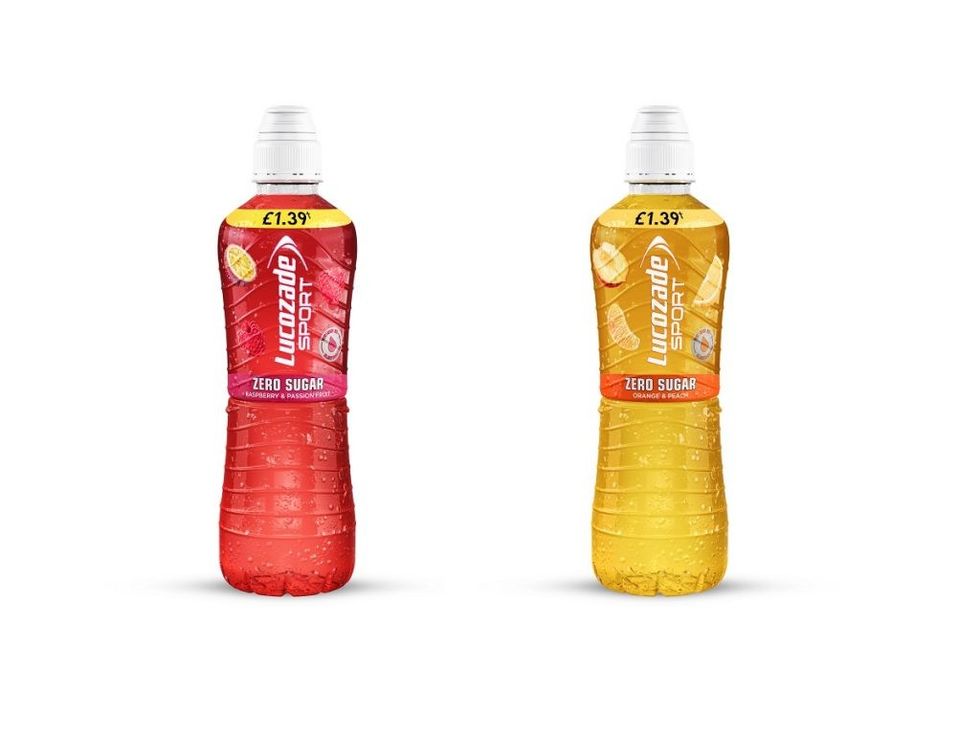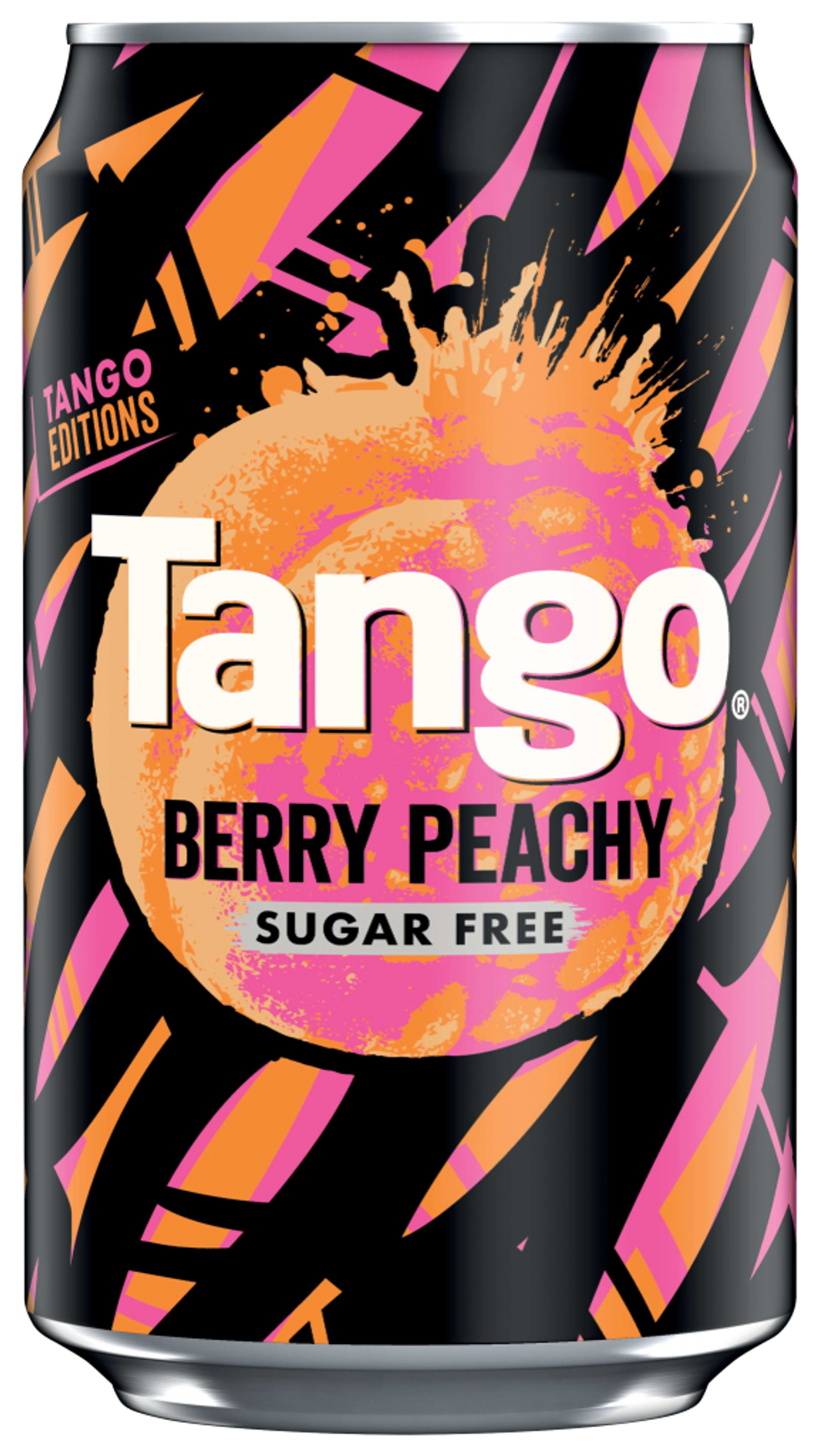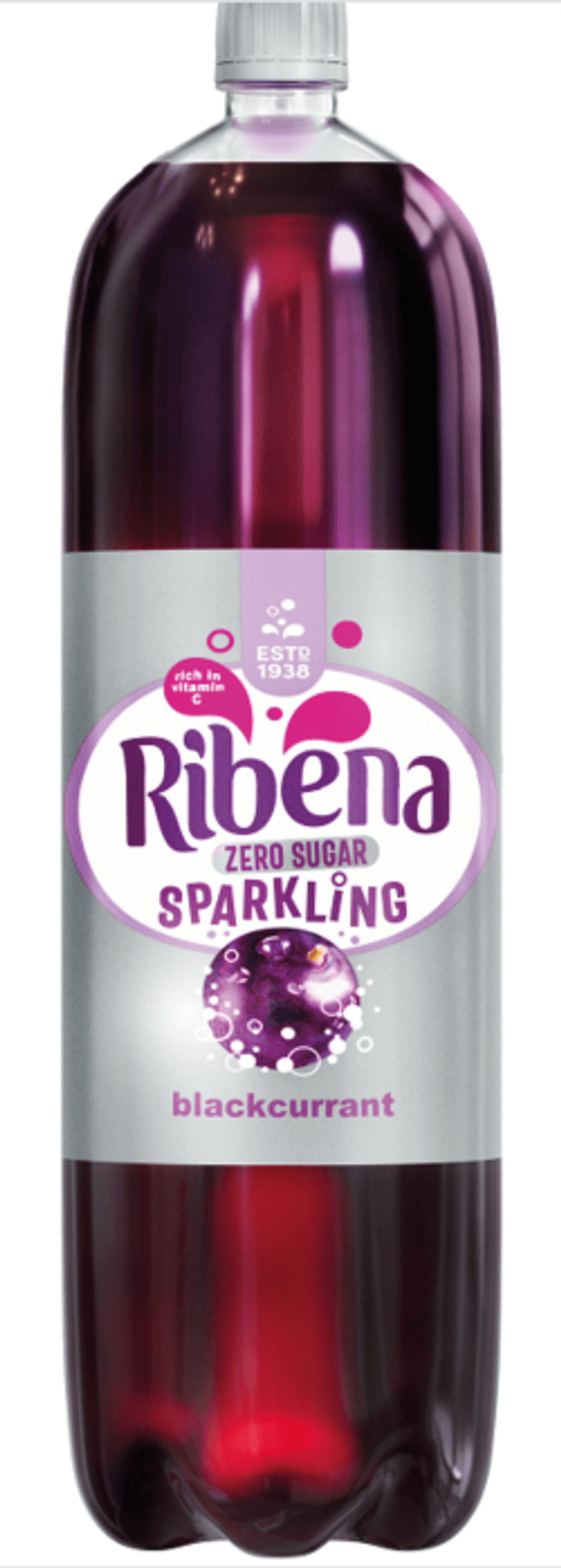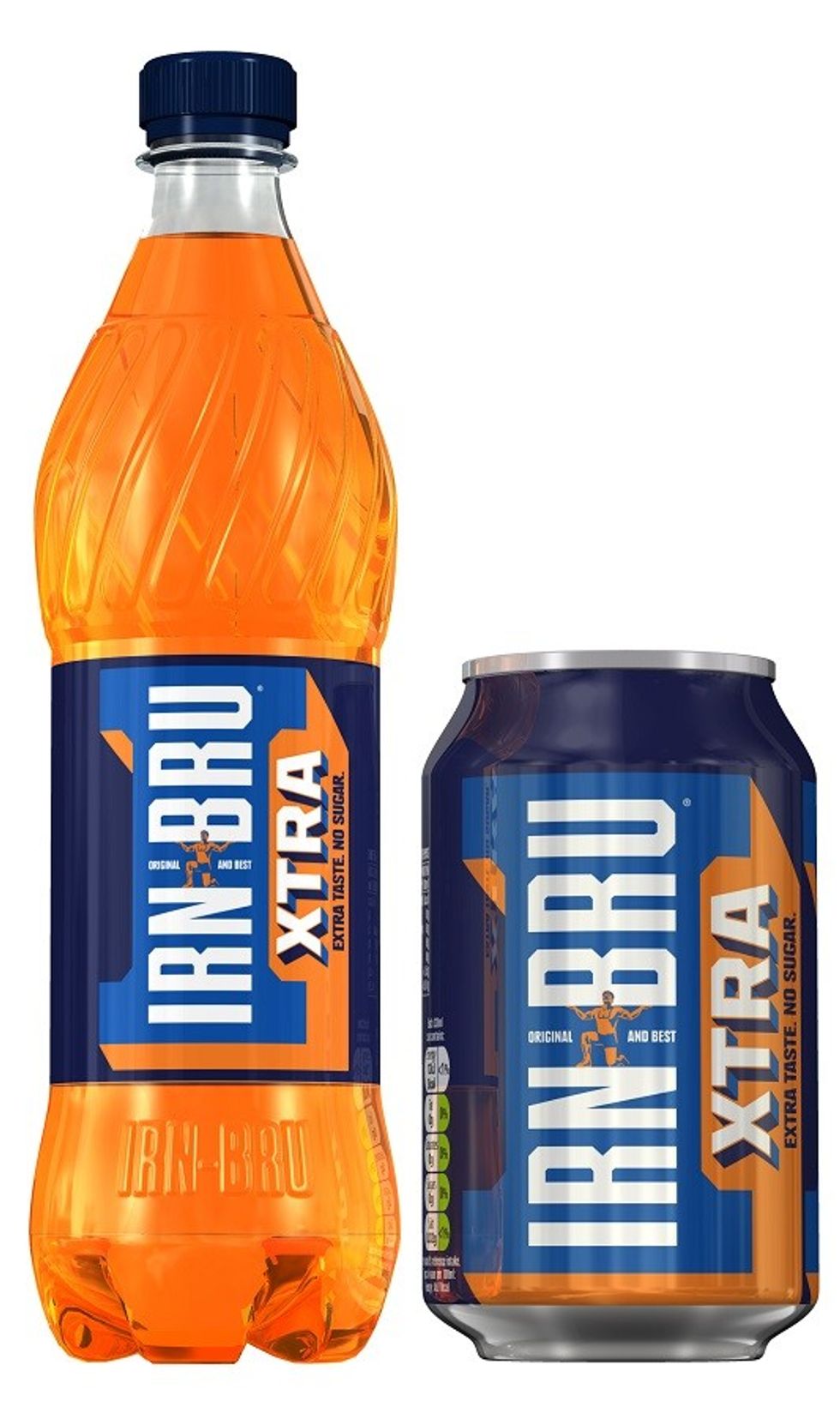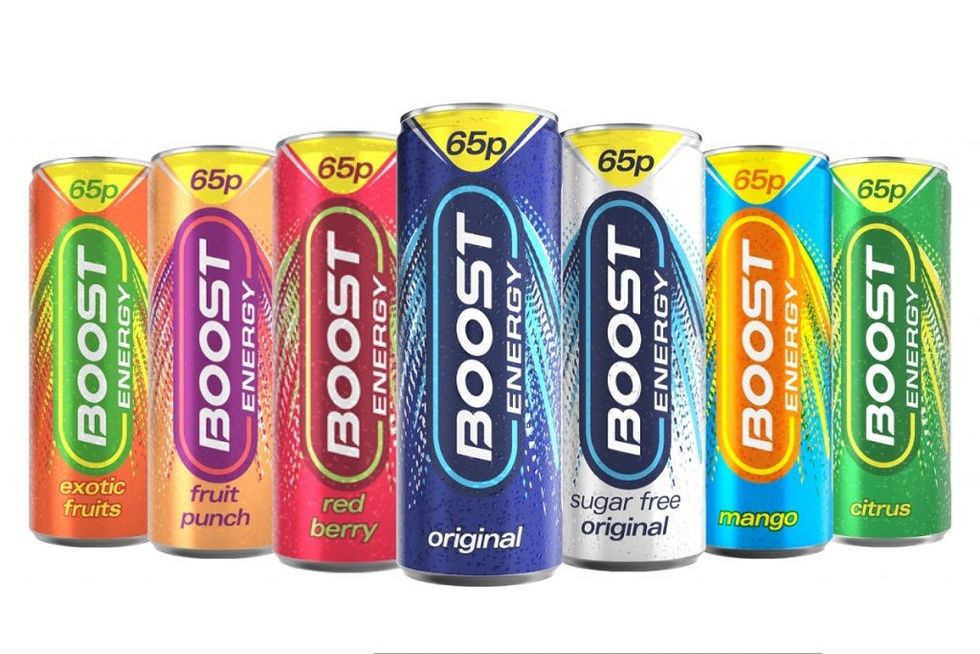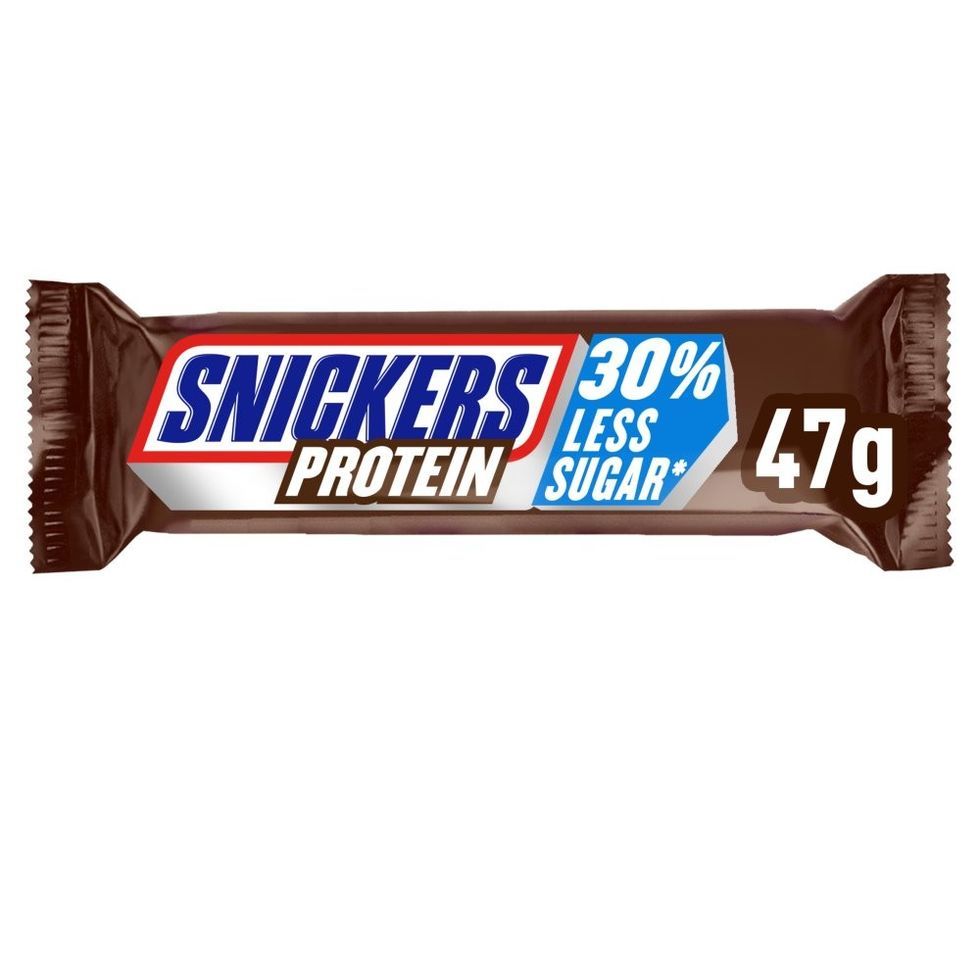With the nation more interested in its health with every passing year, and government regulations reflecting this, the range, availability and popularity of items that can boast less sugar – either no or zero levels of the sweet stuff – has never been more important to independent retailers.
This April marks five years since the introduction of the Soft Drinks Industry Levy – popularly known as the sugar tax – in 2018. The levy applies to soft drinks that contain more than 5g of sugar per 100ml. As a result, many soft drink manufacturers have reformulated their products to reduce sugar content, and new low and no sugar products have been introduced to the market. There has also been a rise in the popularity of natural and organic low and no sugar soft drinks, which use natural sweeteners like stevia or fruit juice instead of artificial sweeteners.
And a new study, published in January in PLOS Medicine, has shown that the sugar tax was followed by a drop in the number of cases of obesity among older primary school children in England.
According to the research led by the Medical Research Council’s Epidemiology Unit at the University of Cambridge, an estimated 5,200 cases of obesity per year may have been prevented in year 6 girls alone, taking into account current trends in obesity. However, it found no significant association between the levy and obesity levels in year 6 boys or younger children from reception class.
“We’ve shown for the first time that [the soft drinks industry levy] is likely to have helped prevent thousands of children each year becoming obese,” Dr Nina Rogers from the MRC Epidemiology Unit at Cambridge, the study’s first author, commented.
“It isn’t a straightforward picture, though, as it was mainly older girls who benefited. But the fact that we saw the biggest difference among girls from areas of high deprivation is important and is a step towards reducing the health inequalities they face.”
Sugar down, sales up
The sugar tax has been able to reduce sugar consumption without much impact on sales. The total sugar sold in soft drinks by retailers and manufacturers decreased by 35.4 per cent between 2015 and 2019, which includes the two-year lead-in before the levy took effect, from 135,500 tonnes to 87,600 tonnes. Over the same period, the sales-weighted average sugar content of soft drinks declined by 43.7 per cent, from 5.7g/100ml to 2.2g/100ml, according to a report by the Institute for Government.
Meanwhile, total soft drinks sales increased by 14.9 per cent between 2015 and 2019. Within this, sales of no-levy drinks increased by 54.2 per cent, while sales of low- and high-levy drinks fell by 79.1 per cent and 54.8 per cent respectively. (The levy is paid on two levels: 18p per litre on soft drinks containing between 5g and 8g of sugar per 100ml and 24p per litre on soft drinks containing more than 8g of sugar per 100ml.)

It is now clear that the sugar tax has not harmed the long-term profitability of the soft drinks industry. Moreover, according to a market research report by Statista, as of 2021, the market share of low and no calorie variants of dilutable soft drinks in the UK has been 88.6 per cent whereas the regular dilutables represented approximately 4.8 per cent, and mid calorie drinks 6.6 per cent, of market volumes. Low and no sugar soft drinks are the best-selling sector (+£1.5bn) and fastest growing, up 12.8 per cent vs full sugar (+12.5 per cent), according to the Nielsen Scantrack data [MAT w/e.14.01.23].
Evidently, the market for low and no sugar soft drinks has been growing steadily in recent years, as consumers become more health-conscious and seek out lower calorie and sugar alternatives. As a result, many manufacturers are introducing new products in this category to meet the growing demand.
HFSS challenge
As the government has introduced another piece of legislation to tackle obesity – the HFSS regulations which took effect in October last year restricting the siting of products high in fat, sugar, and salt in stores – reduced sugar options will only continue to grow in importance.
“As a category we were well prepared ahead of the legislation, following the introduction of the Soft Drinks Industry Levy which came into effect in 2018. Therefore, to date, soft drinks [category] has been in an ideal position to help retailers with any shortfall from other non-HFSS categories,” comments Ben Parker, GB Retail Commercial Director at Britvic.
The low- and no-sugar reformulations have resulted in 90 per cent of the Britvic portfolio, 196 liquids, already being HFSS compliant.
And in the case of Suntory Beverage & Food GB&I, Matt Gouldsmith, Channel Director, Wholesale notes that every single bottle and can of Lucozade and Ribena in all flavours and variants were already non-HFSS due to the reformulation the firm has carried out over the past few years to reduce the sugar content in the brands.
“All the hard work has already been done, meaning – unlike many other soft drinks brands on the market – no changes to promotions either in store or online are necessary for our core brands and retailers can continue to sell our drinks as normal,” he says, adding that the HFSS legislation provides a big opportunity for retailers to maximise sales in zero-sugar soft drinks through category favourites and new additions like Ribena Sparkling Zero Sugar.
With the low or no calorie segment continuing to outperform regular soft drinks, he also recommended retailers to stock up on lower-sugar drinks such as Lucozade Zero, which is seeing recent YoY growth of 58.5 per cent (Nielsen), to make the most of this ongoing trend.
Britvic’s Parker says their innovation pipeline continues to centre around low and no sugar products which meet HFSS regulations and offer consumers better-for-you options.
“A recent example of this is the launch of Tango Apple Sugar Free in September 2022, and 7UP Free Cherry in a 500ml bottle for the first time in March 2022, so that people could enjoy the popular drink on the go,” he explains.
“With the growing popularity of flavoured carbonates, both products meet the consumer demand for tasty sugar free flavours. Last year the company has also reduced the sugar content across its Rockstar core range of energy drinks, making the brand’s six best-selling flavours HFSS compliant.”
Britvic is continuing the innovation momentum this year with the launch of Tango Paradise Punch Sugar Free as part of its Tango Editions rotational flavour series. The flavoured fruit carbonate has been available from mid-February across both take-home and on-the-go formats to cater for different consumption occasions.
“The rotational flavour series has been a huge success to date, showcased in the launch of Berry Peachy [in March 2022], it’s helped us continue to recruit younger shoppers into the brand and in turn, support with the driving of sales and footfall,” Parker says.
“A variety of pack formats are available including a 330ml can and 500ml bottle, great for on-the-go consumption. A price marked pack option is also available across 500ml bottles, helping to offer shoppers the reassurance of value which in turn creates confidence in local retailers and how they price their products.”
Search for value
Parker notes that PMPs will be key amid the cost-of-living crisis and he also predicts a portion of shoppers switching to smaller pack sizes to save on spend. “Our range meets these different consumer needs with a tasty new flavour to tempt shoppers, whether they’re at home or on the go, and within the confines of a trusted brand,” he adds.
Gouldsmith, meanwhile, expects to see a rise in the Big Night In occasion as shoppers become more price-conscious and look to spend time with friends and family at home.
“In fact, 36 per cent of consumers are reportedly going out less than usual. As such, retailers should ensure to stock up on larger soft drinks formats such as Ribena Sparkling Zero Sugar’s 2l bottles to meet these shoppers’ needs,” he says.
Gouldsmith too stresses the importance of the PMPs for retailers to demonstrate value and give shoppers confidence that they are getting a fair price, recommending their recently unveiled reduced-price PMP bottles of Ribena Sparkling to tap into this.
Adrian Troy, Marketing Director at Barr Soft Drinks, notes that the category is not seeing as big a shift in purchasing habits as others, such as ready meals or confectionery, but agrees that value is certainly at the forefront of shoppers’ minds when buying a soft drink.
“Barr Soft Drinks’ range of brands is synonymous with taste, value and quality for many shoppers. With a range of PMPs available across the portfolio, there is an opportunity for retailers to build a profitable range that continues to deliver incremental sales,” he says.
Sparkling and healthy
Troy also highlights the opportunity in water, as a YouGov survey for British Nutrition Foundation has found that drinking more water is the No.1 healthy change that shoppers are looking to make, with 40 per cent of consumers vowing to drink more.
“The demand for both bottled water and low and no sugar soft drinks is on the rise, as shoppers look for lower calorie soft drinks that don’t compromise on taste and give them a fruity flavour hit,” he says. “Rubicon Spring saw a 30 per cent uplift last January, highlighting a huge opportunity for retailers to drive incremental sales from the water category with the UK’s No. 1 sparkling flavoured water.”
Rubicon Spring combines sparkling spring water and fruit juice, with 15 calories or less per bottle. As a high taste, low calorie alternative, the product works as a bridge between the healthiness of water and the taste of carbonated fruit drinks.
“Our research shows us that many carbonates shoppers who are looking to reduce their sugar and calorie intake simply don’t want to compromise on their favourite soft drink, so it’s really important for retailers to stock a range of brands that shoppers know and love in lower calorie formats,” Troy adds.
IRN-BRU XTRA, delivering extra IRN-BRU taste with zero sugar, delivered more than £28 million worth of sales last year and allows retailers to offer a full-flavour option within the growing low calorie carbonates sector. IRN-BRU also benefited from a £6 million brand investment last year, driving shopper awareness and growth in the Barr Soft Drinks portfolio.
Demand is on the rise for drinks that incorporate natural ingredients, provenance and nutritional benefits, and Adrian Hipkiss, Marketing and International Business Director at Boost Drinks says this can be seen through the fact that Rio is a top-five ranked SKU in Fruit Carbonates based on unit rate of sale and has the second largest wholesaler sales rates to retailers [IRI, 52w/e 10.07.222].
“This shift in consumer appetites is only set to keep growing, so it’s vital for retailers to take this into account with a stock range that reflects this evolving consumer appetite,” he suggests.
“Insight illustrates that Flavoured Carbonates is the third largest category in soft drinks, worth over £291m and growing 8 per cent YoY [IRI]. This in turn points out that Rio offers huge growth opportunities for retailers; and with a range of products such as Rio Tropical and Rio Tropical Light, there’s a selection of products on offer to suit varying consumer needs, including those looking to make more conscious choices about the products they consume, as many are in 2022.”
Energy burst
Sports & Energy is key within soft drinks and energy is the largest soft drink category in the independent channel [IRI], with £1 in every £3 spent on soft drinks being spent on an energy drink.
Despite a higher need for sugar in functional drinks when compared to other soft drinks – as an ingredient that provides part of the functional benefit – the consumer’s quest to moderate their sugar consumption has made the brands in the category to pivot to low and no sugar ranges.
Red Bull, for example, offers no sugar variants in both single serve and multipacks with Red Bull low calorie single serve in growth up 18 per cent YoY and multipacks, up 240.1 per cent. The brand’s best-selling low-calorie drink is Red Bull Sugarfree 250ml, which has seen YoY growth of 12.6 per cent [Nielsen MAT w/e.14.01.23].
“With regards to the shopper, Red Bull low-calorie has a higher share of males vs total soft drinks (+58 per cent vs 48 per cent), which is representative of the Sports & Energy sector. They also tend to be younger and less affluent, whereas low-calorie soft drinks shoppers are largely older and more affluent, therefore Red Bull offers a different type of shopper vs the category,” a Red Bull spokesperson explained.
Since every shopper need is different, the brand notes that it is crucial that their favourite soft drink is available in a range of formats to help satisfy their immediate requirement. “Two in three Red Bull shoppers actually go into store knowing which can size they want to buy, therefore Red Bull Sugar-Free is available in three different can sizes - 250ml, 355ml and 473ml, with each playing a key role,” the spokesperson adds.
In fact, sizes contribute to 57 per cent of Red Bull’s overall growth and Red Bull sizes have grown 218 per cent in shoppers. As well as Red Bull Sugar-Free 250ml, category must-stocks include Red Bull Sugar-Free 355ml, which is growing 6.5 per cent within the convenience channel, and Red Bull Sugar-Free 473ml, which is up 58.4 per cent in value vs YA.
“Red Bull Sugar-Free 250ml is ideal for on-the-go consumption, with 50 per cent of 250ml shoppers drinking the can immediately after purchase. Whereas, one in three Red Bull shoppers are likely to consume the larger cans later in the day, with Red Bull 355ml variants linked to gaming, studying, and socialising, and Red Bull Energy Drink 473ml being the can of choice for all meal occasions, making the Sugar-Free variant an ideal option for a meal deal offering,” the spokesperson says.
The brand has recently launched its latest Summer Edition, with the taste of Juneberry.
“Flavours are essential in driving Sports & Energy sales, particularly over the summer, and many of the shoppers are incremental to the category, with 24 per cent of people who don’t currently buy Energy Drinks saying they would try a flavour,” the spokesperson says.
“Additionally, they appeal to converted shoppers, with 41 per cent of current Energy Drinkers saying they would try a flavour. Flavours also bring in more females to the category, equating for 62 per cent of buyers spend in Flavours.
Available in 250ml, 250ml PMP, 255ml Sugarfree and 250ml Sugarfree 4-pack, the launch of Red Bull Summer Edition - Juneberry will be supported with a range of tailored POS to raise awareness in-store across all key touchpoints.
When taking a closer look into the energy sub-categories, it’s the Energy Stimulation drinks which play a significant role in contributing to the growth of the soft drinks category, growing 14 per cent YoY, and accounting for 26 per cent of all soft drink value sales [IRI Symbols & Independents 52w/e 10.07.22].
“Boost is the only brand operating in four functional drink categories – Energy Stimulation, Sports Drinks, RTD Iced Coffee and Protein Shakes and within the energy stimulation category, it’s the third largest brand, something we’re incredibly proud of,” comments Hipkiss, of Boost Drinks.
“Overall, to maximize on profits retailers should prioritise stocking Boost as a leading brand within the soft drink growth category, especially as a brand that provides a diverse range of pack formats, flavours and take-home offerings, ensuring retailers can meet the needs of their core consumer groups.”
‘Clean’ confectionery
The sugar-free products have also been growing steadily in recent years in the confectionery segment, driven by the increasing number of people who are following low-sugar diets, either for health reasons or to manage conditions such as diabetes.
There is also a growing trend towards "clean" eating and natural ingredients, which has led to increased demand for confectionery products that are free from artificial additives and preservatives.
According to a Mintel market report for 2022, 31 per cent of sweet eaters would be encouraged to try a new product with sugar-free varieties. Moreover, The UK Attitudes towards Sugar and Sweeteners consumer report by Mintel (2021), the majority of adults (57 per cent) are actively taking steps to limit or reduce their sugar intake, and 53 per cent of females and 45 per cent of males who take steps to reduce/limit sugar opt for food/drink with reduced/no sugar content over standard products.
“Consumer perceptions of their own sugar intake imply a far smaller problem than the reality. Opening the opportunity to brands and retailers to educate consumers on sugar confectionery and the lower sugar varieties available,” comments Elizabeth Hughes-Gapper, Jakemans Brand Manager.
Only a quarter of adults believe they consume more than the recommended amount of sugar, representing a three-percentage-point drop from 2019, as per the Mintel report. Even among under-35s – who are the most prolific eaters of sweet treats and drinkers of sugary drinks – only one in three think that their sugar consumption exceeds the recommended levels.
“It is fair to say that not all confectionery in healthcare is consumed regularly, typically only when suffering from an ailment. Therefore, consumers wanting to actively reduce their sugar intake may look in other areas of their life first to make these changes. For some people, their health circumstances dictate their choice. Jakemans offers a variety of flavours to suit different customer demands, whether that be menthol, berry flavours or even sugar free options,” Hughes-Gapper says.
“In fact, 19 per cent of adults are interested in remedies with different flavour options. This indicates that consumers are looking for ways to make being ill more bearable and brands that can offer a variety of unique flavours and formats.”
With many confectionery and cake products that meet the 30 per cent reduction threshold required to make a reduced-sugar claim will still be classified as HFSS, Kenton Burchell, Group Trading Director at Bestway Wholesale, urges retailers to install a main fixture in the store that will catch the eye of the consumers looking for new product lines that will accommodate their dietary habits.
“Retailers should ensure the visibility of the display of products and have a focal point location in the store where chocolate and sugar confectionery is found, making it easy for customers to choose and buy in one location,” he suggests.
He also advises to merchandise products with no and low sugar category best sellers and create an attractive display to attract customers and increase sales.
“Merchandise the categories together and have the no and low sugar products in one section for consumers to browse. Also add the no and low sugar as part of the meal deals promotions so consumers have alternative options,” he adds.
Burchell emphasises two key trends for the independent stores: PMPs and on-the-go missions.
“Price marked packs with clear pricing gives assurance to customers that they are getting value for their money. The PMPs attract the younger adult demographic with shoppers aged 18-24 being 30 per cent more likely to purchase PMPs [IRI], he says.
“On-the-go missions such as protein bars purchased by consumers passing through the convenience store after playing sports or after a session at the gym who are opting for no and low sugar formats,” he adds, recommending two bestsellers that Bestway stocks: Mars Protein Caramel, Nougat & Milk Chocolate Snack Bar and Snickers Protein Peanut & Caramel Milk Chocolate Bar.
Hughes-Gapper agrees that demand for convenient and on-the-go solutions will increase as the weather warms and consumers look to venture outdoors more, providing an opportunity for retailers. “Pre-dosed, smaller-sized products and pocket formats are all experiencing growth as consumers look for easy formats for ‘out-of-home’ usage. In fact, last year Jakemans saw a 10 per cent increase in value sales and remains the third biggest brand in the sector,” she says.
She also urges retailers to offer alternative choices to consumers and help educate them on how to slowly introduce low, reduced or no sugar flavours to their lifestyle.
“In terms of confectionery, only a quarter of adults believe they consume more than the recommended amount of sugar. This discrepancy between consumers’ perceptions and their actual sugar intake indicates a lack of awareness of the recommended amount and more education is needed,” she says.
Jakemans launched a new sugar free variant of the much-loved classic flavour, Throat & Chest in January this year. Each lozenge is sugar free but still bursting with menthol – an ingredient that releases natural vapors to soothe the symptoms of a sore or tickly throat and keep airways clear.
“We will be supporting Jakemans throughout the year with a strong TV, OOH, radio and PR campaign ensuring consumers recognise the packs on shelf and the brand remains front of mind throughout key seasonal moments,” Hughes-Gapper added.
Wellness mission
Low sugar content is in the top-three factors’ consumers place importance on when shopping, reflecting sugar’s status as the leading health foe among consumers. An added-health angle looks to be a persuasive way to boost the attractiveness of sweeteners, with 42 per cent of adults saying that sweeteners that provide other nutritional benefits appeal to them, according to the 2021 Mintel consumer report.
“Consumers are increasingly treating their health holistically. As such, they are more aware of the products they use and how this might affect their natural body rhythms,” Hughes-Gapper notes.
“The good news for brands, is that consumers agree that less sugary flavours should be introduced slowly, allowing taste demand to change at a gradual pace. This would also suggest that consumers … are seeking choice and balance in the purchases they make.”
The low and no sugar market in the UK is expected to continue growing in the coming years as consumers increasingly prioritise health and wellness. The market is also likely to benefit from ongoing innovation and new product development as manufacturers seek to meet consumer demand for healthier options. And, the current consumer trends in this category are driven by a desire for healthier, more natural, convenient, and sustainable options, as well as a growing interest in innovative new flavors and formulations.





